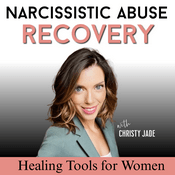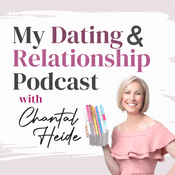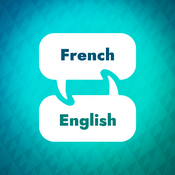NARCISSISTIC ABUSE RECOVERY | Narcissist, Co-Parenting, Grey Rock Method, Boundaries, Healing, Toxic Relationship
Christy Jade - Narcissistic Abuse Coach, Grey Rock Coach , Gaslighting Expert, No Contact Mentor

Último episódio
211 episódios
- The 3 Reasons You Still React to a Narcissist (Even When You Know Better)
You’ve learned the patterns. You understand narcissistic behavior. And yet — you still find yourself reacting, explaining, defending, or feeling emotionally pulled back in. This episode breaks down why that happens and why it has nothing to do with weakness or lack of healing. Christy explains the nervous-system and psychological reasons survivors continue to react, and how awareness alone isn’t enough to change the pattern. If you’ve ever left an interaction thinking, “Why did that still affect me?” — this episode will bring clarity and relief.
In this episode, you’ll learn:
Why trauma bonding keeps your brain hooked even after separation
How nervous system conditioning overrides logic in real time
The hidden emotional triggers narcissists activate — often without words
The shift that helps you move from reaction → regulation → response
Your Next Step in Healing
If you’re ready to stop overthinking interactions and start feeling calm, clear, and grounded again, deeper support can help you retrain both mindset and nervous system responses.
3-Month Transformational Coaching (Deep-Dive Support)
https://shethrives.thrivecart.com/transformational-coaching-quarterly/
Focused, high-support coaching to help you stabilize emotionally, implement boundaries, and break reactive patterns.
6-Month Queens of Peace Coaching Container
https://shethrives.thrivecart.com/6-month-queens-of-peace-program/
For women ready to fully rebuild self-trust, confidence, and emotional safety.
12-Month Queens of Peace Coaching Container
https://shethrives.thrivecart.com/12-month-queens-of-peace-program/
Long-term transformation and identity rebuilding after narcissistic abuse.
Additional Support & Resources
Boundaries Pocket Guide (Free): https://christyjade.ck.page/ce79ea9250
Copy-Paste-Peace Scripts: https://christyjade.thrivecart.com/copy-paste-peace-scripts/
Empowered Boundaries Course: https://shethrives.thrivecart.com/empowered-boundaries/
Free Facebook Community: https://www.facebook.com/groups/christyjade
Contact: https://christyjade.podbean.com/e/ep-5-the-grey-rock-method-how-to-disconnect-from-narcissistic-abusers/
TRANSCRIPT:
Speaker 1 (00:00):
So you understand narcissistic behavior now or at least way more than you used to. You see the manipulation, you see the patterns you promised yourself, you will not get pulled in again. And then one message shows up and suddenly your heart is racing. You're explaining yourself again, and afterward you're wondering, why am I still reacting like this? Today we're going to talk about why that happens and why it does not mean you are failing at healing. Okay? Welcome to your Thursday, thrive in five, your five minute pause from the chaos, the gaslighting, and that text you knew better than to reply to take a breath Queen. This one's for you.
(00:51)
Hello queen. Welcome back to Narcissistic Abuse Recovery with Christy Jade. Alright, so I want to start first with something that I hear constantly, and maybe you've said this to yourself too. I know what they're doing. So why does it still affect me? Because there's this strange phase in healing where your awareness wakes up, but your nervous system is still lagging. It's still not caught up, and this is very, very normal. So I want you to know that first of all, right, your mind understands what happened, but your body, that nervous system, all the things still reacts like it is happening now. Basically it's stuck, and I get that word so much from my clients, I feel stuck. So the text comes in, your stomach drops, you feel pressure to respond immediately. That urgency, oh, I'm familiar, I remember that guy. Do not miss urgency. And you start mentally defending yourself before you've even unlocked your phone and afterwards, then comes the shame.
(02:04)
I should be past this. So today I want to walk you through something very gently, well, as queen gently as I can be, right? Because there are really three things happening underneath these reactions, and once you see them, you will stop blaming yourself. Well, that is my goal here. Okay, so reason one, your body still thinks you are in danger. When you lived inside these narcissistic dynamics, your nervous system adapted to survive the unpredictability. This is something that is not normal. It's not what most people have to go through in life, this unpredictable, unsafe feeling all the time. So you learn to respond quickly, explain fast, fix tension before it actually escalated. Not you were weak, but because your brain was protecting you, right? Your subconscious. So now when that person reaches out, your body reacts before logic has time to step in. Your heart speeds up your thoughts, race desperately trying to figure out what to do, even though a lot of times we've been through this over and over and you feel that urgency again, urgency is my enemy.
(03:32)
I still have some residual, and this is just a little side note, I'll get back in a second, but my a DD creeps in a side note of urgency that can be created even though I have healed so much and comes so far, and I don't feel that urgency to, especially those people that I know longer have relationship with or other similar toxic personalities that come along that treat people like that can try to condition you to feel like everything's urgent even though I don't have that. When you've been conditioned like that for a long time, especially if you grew up with it in your family, childhood, it's a long-term thing. You can develop just an urgency in general, which I've gotten rid of, but not totally all the way. So when I say we're still healing, we're always healing. No one in the world is always ever healed.
(04:28)
We're all on our different paths. I want to be very transparent. I have come so far and I am a completely different person in a fabulous way of who I used to be as far as narcissistic abuse recovery goes, but there's still some things in life that we still have to work on, and sometimes I'll get these little dings of this just urgency because it was so conditioned in my nature. So anyway, we're going to go back to what we're talking about here, but you might be able to relate to that, and I just want to be honest with you guys, so it's not like I know a lot of you will say you feel behind. Well, guess what? There is no behind. We're all always healing. So this urgency creates reaction and you're not reacting to this specific moment. Your nervous system is reacting to what it remembers, everything it remembers. And healing begins when the moment that you realize this is not a character flaw, it's just conditioning. So sometimes the most powerful change is simply pausing and shining a light on it, not answering right away, letting your body catch up to reality before your fingers start typing and you start explaining Overexplaining, can we be real?
(06:04)
I mean, there's so many different reactions we have with narcissists that we've been conditioned to do the overexplaining and just this trying to get the right word because you don't want to escalate and then you're like, well, maybe I shouldn't. There's back and forth in your own head and then it's too late. You already sent this message. So a lot of power comes in pausing and not answering right away, if at all. Do you have to answer? It depends right? With someone. You have to, and there's so many episodes I have on this type of stuff. Gray Rock Method episode is a really good place to start, but don't take the bait, don't get emotional. Keep it simple, keep it short, keep it factual. These are all tips in there. So not answering right away and also go listen to that episode and let your body catch up with reality before you actually start responding.
(07:06)
It is a great, fantastic idea when you get, first of all, you don't even need to read it right away unless it's like they have your child for the weekend. It could be an emergency, right? If not, you don't have to read it right away. Even the urgency is made up. It's bullshit. They conditioned us to feel, okay? So unless it's involving your child in the moment, it's not an emergency. They can wait and you can get your thoughts together to think of how you can stay in your power and your peace and respond with no emotion and no extra information for them either. That is a big tip. Don't let them have extra information that they can use against you. Okay? So reason two, you're still communicating. This is a healthy relationship. Most survivors keep reacting because they're still trying to communicate normally. So you're trying to clarify, you're trying to be fair as you would with anyone.
(08:07)
You're trying to be the bigger person in a way. We talked about this a little bit last week. You're trying to be understood. Can I tell you one of our biggest triggers as narcissist, abuse, recover, or survivors is being misunderstood. Anyone out there? Yeah. Is that true? I know it's true For me, one of my Achilles was being misunderstood. Now you misunderstand me. That's on you. B, bye-bye. Not my shit. Hashtag not my shit. Okay? But that is something that can definitely be a trigger. So when we feel like we're being misunderstood, which they'll purposely misunderstand you or pretend they are misunderstanding you, we go into, oh no, I have to make sure. So now I have to what? Over. Explain. Okay.
(08:58)
Healthy relationships resolve through communication. So we think, oh, if I communicate I can make this better. That's what we should think. If we're in a healthy relationship, we should think, oh, well I need to talk about this. We need to work through this. We can get through this together, but we're not in a healthy relationship even if we're outside the relationship, we are technically in relationship with this person. If we're in communication with them, which I know a lot of you are, especially when you are co-parenting or trying to figure out what to do in a relationship or getting out of it. Sometimes we're out of it, but we still have a little strings attached and if you're there, run, no, I'm just kidding. Alright, but narcissistic dynamics, they don't calm through understanding. They continue through engagement. So what does that mean? They don't get calmer through understanding.
(09:59)
Why? Because again, this isn't a healthy individual who's receiving your information like a healthy individual would, right? So it's just continuing engagement and that's what they want, and they want you to take the bait so they can gain more control of you and confuse you and manipulate you more. So then every explanation gives more material for them, right? I was saying you don't want them to have more material, more ammo against you. Every defense keeps that emotional loop alive and they love that. They love to get emotions out of you, good or bad, they don't care. And this realization can be freeing and heartbreaking at the same time. When you realize all this stuff, I was just talking to a client this week about this, it can be devastating that all of this is going on, but once you accept it, so the hard part is realizing it. Let's put it this way, the hard part is realizing it. The freeing part is accepting it.
(11:11)
Okay? Should I say that again? The hard part is realizing it very difficult. You might not even be able to do it overnight. It might be a couple weeks to really soak in when you start to really understand the mind of a narcissist, but the freedom in it, the power in it comes from accepting that it's all true, right? Because you start to see it through a very different lens. So you were not failing to communicate well enough. You're trying to solve something that wasn't designed to be solved. They don't want it to get that sucks, right? It sucks to realize that. But the faster you accept that knowing, they actually don't want to resolve this, they don't want to have peace. And if they say they do, they're bullshitting you. I know you want peace. You're the only one who can get it for yourself.
(12:17)
They will not give that to you. They're not giving peace out on any kind of silver, gold or rose gold platter. So when responses become shorter, simpler, focused on only what actually matters, you get out of that emotional area. And we're not doing this to punish them. You don't have to be vindictive, you don't have to be mean. You be neutral, baby. That gray rock method is called gray rock for reason. What's gray? Neutral blend in neutral. We're not going to be sparkly. They don't get our sparkle and they don't get our dark because dark is not our natural state. Sparkle, of course it is. We're queens. They don't deserve all the sparkles so they can have our leftover neutral, okay? Actually my neutral is leopard print. So where do we go from there? I don't know. Okay, so you're not doing it though to punish them, okay?
(13:15)
So any guilt you have, spit it out. Just spit it out. It's gross. We don't like the taste of guilt, okay? We're going to just protect our peace. You're protecting your peace. And I've heard this so many times in different phrasing, but boundaries are not made to hurt others or control others, but to protect yourself. So anytime you have that guilt creep up, remember that part that did help me? I remember the first time I heard that years ago about boundaries. We've been conditioned by narcissists that boundaries are selfish. No, no ma'am. They're not selfish. No, they're protecting yourself, which is absolutely normal. You're not trying to control them. You're not telling them what to do. You are maybe telling them what you'll do if they do something, but that's not controlling them. That's a response, right? Here's an example, quick example.
(14:15)
If you continue to talk to me that way, I'm going to hang up the phone. You're not saying they can't talk to you that way. There's just a consequence, a natural consequence to them being a jackass. All right, get it. Okay, moving on. Reason three, oh my gosh, I'm so thirsty. I had pizza today. Do you guys get thirsty when you pizza? Hold on, I'm taking a swig. I feel like I get so thirsty. Maybe there's extra sodium in there. Is that a me thing? Alright, so reason three, part of you is still waiting for closure. Ah, it's true. So this one is a little quieter, but maybe deeper. Maybe it's deeper. Maybe we don't want to think about it, but maybe it's true. So ears open. Listen to Christy Jade. So many reactions happen because part of you still hopes that one interaction will feel different.
(15:20)
Maybe they'll finally understand. You can be a big tough ass bee. Like myself, I was always kind of tough. I wasn't as tough as I am now probably, but I was at a little tough side, maybe not with certain people, but even that tough girl who was like, I don't care, whatever. Was there a little hope, a little sliver that narc would hear me or not misunderstand me the trigger? Or maybe I'd be special enough to change them. Maybe they take accountability because they love me so much. By the way, PS, another heartbreaker is they don't really know what true love feels like. They don't love the same way as us. I don't know what to call it, but I don't want to call it anything right now. We're not going to talk about their love other than that can mess with your mind. So I'm slipping that in there. It's just a note. Just a little side note that they don't love the same way I get that question a lot, you guys, well, if he loved me, how could he do this? They don't love in the same way that we know how to love.
(16:42)
But back to the reactions I'm trying to hold on. Lemme look at my notes here happened because part of, yes, still the hope, still the hope that they will maybe show you kindness, that they'll soften, they'll have a wake up call, any of that. And there's nothing wrong with wanting that. It means you loved sincerely. And I don't want you to regret loving anything. Anyone in this world we're beautiful humans with beautiful love, beautiful hearts. Most of us are empaths that get taken advantage of by people like this, right? We have a lot to give. I am a wild, passionate Italian woman. I got a lot of love. I got a lot of spice. I will tell you how I think, especially now, but we have a lot of love and I don't want anyone to go, man, I wish I never, I wish I never, I believe we all had a path. We don't know all the reasons, but what do you do now? You learn lessons. Yes, but regretting love. No, it means you love sincerely. That's okay.
(18:06)
The healing accelerates though. When the closure stops being something that you want to receive, it doesn't come from the conversation going differently. Closure comes from you no longer needing that conversation to feel. Okay? That's when the actual shift starts happening. And I've had that in my own journey where I really, even though I didn't seek it deep down, there was this hope of this sliver of hope. I say didn't really know if it was there, but there was always a little hope. Well, maybe one day I'll get that, sorry or that call. And then I had another day where I woke up and said, I don't even want that call. I don't need that call. I don't care about that call anymore. I don't need that anymore because I had been on my healing journey. I had done the inside work, especially the somatic healing.
(19:30)
Blew all my healing out of the water. Hashtag somatic healing is the bomb. I don't know why I'm doing hashtags in the bomb. I'm really just regressing today. So welcome to my regression show. But I, in my journey, that moment of it was a new truth that was truly from the inside. I felt it deep and I know who I am. I don't need to be affirmed by other people anymore. I don't need a conversation for closure anymore. I know who I am. I know I loved hard. I love hard in general. I'm a good person. I'm a good wife. I'm a good sister, I'm a good mother, I'm a good daughter. And I'm not trying to be like, ooh, toot too. But at a point you finally get enough confidence, it doesn't mean you're cocky. It means you're saying, I am good enough. I'm finally good enough.
(20:43)
And if you've been conditioned by a narcissist bottom line, you believe you're not good enough. At some point, probably ongoing. And I never felt good enough because this narcissist, well, there's a couple in my life, but one started out and I didn't feel good enough because of how they messed with my mind and my beliefs about myself and to do all this beautiful somatic work and come out of that being like I'm not questioning myself anymore and gaining the self trust, not just confidence, right? I'm good enough, but I trust myself to know X, Y, z moving forward. That is huge. That's the hugest thing that I feel I can help guide you through in working with me. That is a gift. Not saying it's my gift. I'm just saying this work is a gift. I think it's a gift from God. I love that he placed it in my life and I've had such impact from it, and I love even more that I got to experience it, know how amazing it is, and immediately be like, okay, I need to put this into my work because now we are talking more than, I mean, it was great enough with the narcissistic abuse, recovery, coaching, now you're going to go sprinkle in the somatic stuff and lives are exploding in amazing ways.
(22:19)
I know that's a weird word to say, but it is just because it's mind blowing work. It's mind blowing. That's all I can say. It's really awesome. So I got totally sidetracked there, but I love it. So let's go back, wind this up, that closure, the shift starts happening once you let go of needing that closure, but there's a gap there. You need it probably right now if you're agreeing with this. So you need to do some healing before you can close that gap. And that's whether it's with your therapist, whether it's with me, whatever you can do to close that gap. So what does healing actually look like?
(23:06)
It's not the moment you never feel triggered again in your life, okay? It's actually kind of quieter than that. It's like pausing before responding, right? Take your little fingers away from that text message. Go put that phone in a drawer. Go back to it later and listen to the Gray Rock Method episode. I'll try to put that in the show notes. By the way, it looks like we're recovering faster, which is huge with somatic healing. It looks like noticing the reaction without being controlled by it. So you might get even a visceral response for a while. That might not be overnight that that leaves you. But instead of letting that marinate and take over and control your body and then your mind, you go, wow, I feel my body getting real tense about this. Let's say it's just a text message and you go, okay, I'm going to do some breathing.
(24:09)
We got some somatic tools from Christie Jade up in here. That's by the way, thrive in five on Thursdays are all about those tools. How can I take myself into the present moment, shift from away from being triggered and telling my body, guess what? Calm down. We're safe. We're good. Take a breath. Go take a walk. Go listen to some fun music. Go eat some bon bonds, okay? Get out of that moment. Don't be controlled by their shit anymore. And the day you realize something small, but life changing, the message comes in and your whole day doesn't collapse. It doesn't affect you the rest of the day. You don't have to go call your girlfriends. You don't have to cry and eat too many bond bonds. We got to moderate our bond bonds. And that's when your nervous system finally understands, I am safe. Now I just put my hands in my heart. Oh, I was feeling that. It's my favorite little phrase. I'm safe now.
(25:21)
So if you're still reacting, sometimes you're not behind. First of all, you're in very good company. I know a lot of you guys, you can actually join my Facebook page and chat together. That's in the show notes too, right? You're not broken. You're in the middle of your body learning a new definition of safety. You're in a transition. That's all it is. So just breathe. Not everything can happen overnight, and you're not going to win healing by never being triggered. We all want that. I hope to never be triggered again. I can still get triggered, but it's what I can now do with it because of my healing. I got to take another swig, man.
(26:13)
I'm sure it's lovely to listen to out there. You like it my gulps. So you actually win when their behavior stops. Like deciding your emotional state. Take your power back, queen. Don't let them do that. You're letting them do that. They're not doing it. No one can control your emotions and that's not fun. We love to blame everybody else, and I'm not trying to put blame on you, not adding to guilt or shame, but saying we do get to heal and we get to shift that power and it's beautiful. This is empowerment. And then it shifts slowly and then all at once. I do feel like there's this click moment where just like a lot changes, you go through these motions and it's like boom. And you're like, whoa. And you look back, you're like, I get here. This is amazing and it's coming for you.
(27:09)
You're listening to this podcast. So obviously you're one step closer to freedom. So if this episode resonated, share it with someone who needs the reminder that healing isn't about perfection, it's just about progress. And if you, like I said, you want some deeper support, I basically do coaching and somatic healing wrapped up into one. And we do one hour sessions once a week, and I have three programs we could do three months, six month and 12 month. And you can read about them in the show notes if you want more details or you can always email me. My email will be in the show notes too. You can ask me more about them or we set up a fun little call and start if you're ready. Yeah, I know I want this. I'm in. You can start with three months, six month, 12 month. They all have Voxer access, which is a fun walkie talkie app.
(28:12)
So you can either just text normal people or do voice messaging, which I say like normal people because some of my friends hate voice messaging. I like it, I'm fine with it. But you can do that. It's on Voxer and I can explain details of that. But generally I check that once or twice a day and I'll get back to you within 24 hours during Monday through Friday. So that's a fun thing my clients love taking advantage of. And it's in between our weekly calls. They get to be like, Hey, I was just thinking about this. Someone might be, I've got spinning out calls. You can't leave. 80 minute messages says, okay guys, but you get my point. I mean, I've had people kind of spinning out and like, oh, this thought's resonated. And then I get to come back and remind them what a queen they are, and I give them tools.
(29:06)
Maybe in the moment, go do X, Y, Z. And it's beautiful. They get this in-between support. So I don't know. I love my programs, but I'm very biased. No, I'm just kidding. If you do have questions, seriously, please email me or read the more detailed descriptions on the links. You can click the links and read more and sign up because I want to work with you because I want to help more people because f these narcs that think they can get away with this, know we are going to heal and we are going to take over the damn world. World, yes, Queens. All right, let's end with I feel like we need to some affirmations. Take a nice breath through your nose, out your mouth, and repeat after me. All right. Let's see what's a good one for this week? I separate my energy from their dark energy. Okay, I am no longer in danger because I am a queen. Yes, you are. Shine that crown. Go sign up to work with me. Make sure to follow so you don't miss any episodes on whatever platform you're on. And I will see you in the next episode on Thursday. Love you. Bye. 3 Boundary Traps Narcissists Use in Co-Parenting And How to Outsmart Them Every Time
12/2/2026 | 15minShort Description
Narcissistic co-parents are masters at twisting boundaries—but you don’t have to fall for their traps. In this Thrive in 5, I break down 3 sneaky tactics they use and exactly how to outsmart them so you can protect your peace and power. 👑✨
💻 Courses & Coaching
👑 Empowered Boundaries Course → https://shethrives.thrivecart.com/empowered-boundaries/
✨ Work 1:1 With Me (current 1:1 programs) →
3-Month Coaching Container
Focused, high-touch support to stabilize your nervous system, strengthen boundaries, and stop being emotionally hijacked by co-parenting dynamics.
https://shethrives.thrivecart.com/transformational-coaching-quarterly/
6-Month Coaching Container
Deeper healing and integration for women ready to fully rebuild self-trust, emotional safety, and confidence after narcissistic abuse.
https://shethrives.thrivecart.com/6-month-queens-of-peace-program/
12-Month Coaching Container
A long-term, transformational container for women ready to fully reclaim their power, peace, and identity — and create a steady, regulated life beyond survival mode.
https://shethrives.thrivecart.com/12-month-queens-of-peace-program/
🌟 Connect & Resources
👑 Join the Private Facebook Community → https://www.facebook.com/groups/christyjade
🎁 Free Boundaries Pocket Guide → https://christyjade.ck.page/ce79ea9250
🎤 Subscribe to the Narcissistic Abuse Recovery Podcast → https://www.podbean.com/podcast-detail/f7vsi-208d1a/Narcissistic-Abuse-Recovery-Podcast
🎧 Related Podcast Episode
🪨 The Grey Rock Method: How to Deal with a Narcissist if You Cannot Go No Contact
https://podcasts.apple.com/us/podcast/the-grey-rock-method-how-to-deal-with-a-narcissist/id1662241353?i=1000648879776
TRANSCRIPTS
Speaker 1 (00:03):
Welcome to your Thursday, thrive in five, your five minute pause from the chaos, the gaslighting and that text you knew better than to reply to take a breath Queen. This one's for you. Today we are breaking down the three biggest boundary traps that narcissists use in co-parenting. They are sneaky little ways. They try to keep you off balance, steal your peace and rope you into their chaos. No thank you. So here's the best part. I'm not just going to tell you what the traps are. I'm going to give you the exact tools to outsmart them every single time. Queen Edge. Alright, so the first is the infamous guilt trip. You're probably familiar with that, right? They'll say things like, if you really cared about the kids, you'd switch weekends or you're being so selfish by not helping me out. And what is their goal to make you feel like a bad mom or a bad co-parent?
(01:09)
Bad parent, period. Unless you cave, right? They're trying to get whatever fits into what benefits them. So how do you outsmart it? First you stick to the plan and then literally repeat the boundary without defending it. Remember this part without defending it? So that could look like, nope, we're going to stick to the parenting schedule and then pause. Zip it. Do not explain. Okay? We have a tendency when we are people pleasers or empaths or don't want to be misunderstood. That was a big trigger for me just in my life being misunderstood. So over explaining can make us feel like maybe we'll be understood or just giving reasons, right? Don't explain, don't argue, don't get emotional. None of those things are going to help, okay? You want to outsmart them. Remember that the silence is actually the strength, okay? Remember, silence is strength. Silence is strength.
(02:18)
Don't take the bait. Okay? So number two, the endless negotiator, okay, you say no and they immediately push back. Well what about just this one time? Or well if we switch next week instead, or what if I pick them up later instead of earlier? What if all the different things to try to get their way somehow and getting their way equals what? Control. That's what they're trying to get. We're not going to give it to 'em, okay? They keep changing the terms to wear you down. So this is actually calculated, manipulative. When they're doing this. They figure if they can drag you into the back and forth, they then already have your energy. They're already gaining the power over you. So how do we outsmart it? Again, don't take the bait. My favorite phrase of life, restate once, then disengage. So it's very similar. So something like, no, we'll be sticking to the plan.
(03:27)
If they keep pushing, don't respond. I would maybe say it twice. If they have a first negotiation party coming out of their mouth, say, Nope, we'll be sticking to the plan. Nope, we'll be sticking the plan and then don't respond. Or maybe on the third time you say, I've already answered and move on your time, energy and sanity are what is not up for negotiation. And if you let them repeatedly suck you into where you're responding over and over and over, they are gaining that power and feeling like they're getting you closer and closer to giving them what they want. And they probably are half the time, okay? So don't get sucked in. Alright? So trap three, the victim act, okay? They'll say something like, you're making my life harder or You're the reason I can't see my kids as much as I want. They play the poor me card to twist the narrative and put you back in caretaker mode.
(04:44)
They know at this point that you have a big heart. They know that. Know your soft spots, they know your buttons so they know even more specifically what they can say in these situations to get you to feel sorry for them. So how do you outsmart this? Don't step into the role they are assigning you. Okay? I want you to hear that one. Don't step into the role they are assigning you. It's not your role, baby. Okay? It ain't your role. It doesn't look good on you anymore. Nope, we're moving on. So a simple firm statement like I'm not responsible for your feelings. We're following the parenting plan. And then again, if they come push back, you repeat again, we're following the parenting plan. And then you say, I've already answered, move on. If you give it that much, I'm saying three max, three responses max.
(05:49)
It's not your job to rescue them. I know we love rescuing. Gosh, I mean, I adopted a child, I adopted a dog. I'm all about that rescue life. I get it, girl. No, but I know you probably have a beautiful heart. You understand? You feel like, oh, maybe they had a hard childhood or this and that, all the things, or oh, they lost their job. There's so many things and feelings, I get it. But it is your job to protect your peace and your child's emotional safety above everything else. If you're a God person, it is God, you and your kid. It is not your job to save a narcissist. It's not your job to save a toxic person. It's not your job to save anyone, your child hell yeah, save that child and saving your own sanity for yourself, but also for your child.
(06:52)
Your child needs the most stable, healthy minded parent they can, especially because they have another parent who is so unhealthy. Okay? So keep that in mind when you're feeling guilty or second guessing your role, that's your role. Your role is to be a peaceful parent and that does not mean that you cave to the narcissist. Okay? So here's your thriving five challenge for the week. You like that? Alright? You're going to watch for these traps, the guilt trip, the negotiator, the victim, and the next time one of them shows up, practice outsmarting it by keeping your responses short, firm and free of over-explaining. And again, I've mentioned a lot recently, I feel like my Gray Rock Method episodes, so if I forget to link them, I hope I don't, I might. And just look up Gray Rock Method in my podcast or with my name and it should come up.
(08:00)
I think there's two episodes on the Gray Rock method that is all about going a little more deeply into this stuff. But if you want even more tools to help you hold boundaries that actually stick, I mean it is a whole, my course is epic. You will never ever regret purchasing it. It has changed people's lives just from the course. Obviously the one-on-one work is super transformational and customized because I'm there with you every step of the way. The second best thing, if you really want to have transformational experience with not just the co-parent, but anyone else you come into contact with that is controlling, toxic, any of that unhealthy, and you aren't so great at keeping boundaries or maintaining them or what to do in the conversations if they push back or if they do not respect your boundaries. All of that is in that it is a 10 video course and it's one dripped out every week.
(09:12)
These have been selling like little cute pancakes, hotcakes sound like the hotcakes because it's really, really important as a foundation to thrive. In order to thrive, you need to be confident and set boundaries. It is the foundation of moving on into this kind of thriving mentality, which you can do by the way, no matter who you are, what you've been through, you can, there's 10 modules. There's a meditation bundle that goes along with it. If you're into the namaste, calm your body and it's designed to help you step out of survival mode and into peace. Because if you're feeling stuck, one of the problems that is keeping you stuck a big major problem is that you're not feeling strong enough, confident enough, and self trusting enough to set boundaries. And we talk about that in the boundary scores. So it's the energetics, it's the confidence, it's building that and setting the boundaries, evaluating what boundaries you need to have, having the conversations if you need to have them.
(10:32)
And again, going from there, okay, Queens need boundaries and you're a damn queen. Look at you. Go look in the mirror. Would you take a second? Go check her out. She's super hot and she looks like she needs a boundary course called Empowered Boundaries. So I'll put the link in the show notes if you want to do one-on-one. Those of you listening who have signed up with me recently, one-on-one, my coaching, my hours are getting crammed and crammed and I have less space and I'm feeling bad because I'm booking up. It's a great thing for me, but I really want to help everyone I can. So if you are considering working with me, jump in there. Let's get a one-on-one session. I have one-on-one. There's a one-off, which this is not a one-off work, this is not, oh, let's do one and done. This is you're doing your intake call with me to get to know each other and obviously we can feel it out and go from there.
(11:37)
And if you're just like, I just want in on this, I want a huge transformation. There is a package for one month and there's a package for three months. The three months you get a bonus of Voxer in between all our calls. So you get once a week calls. So a lot of fun little options. I'll put them in the show notes. But this boundaries course, right now we're talking about boundaries. That's why I was really focusing on that. And it is a less expensive way if you are tight on funds right now, it's really inexpensive for what you get and you get it for lifetime access. So you can go back to it, refer to it over and over again. It's amazing. Yes, I'm biased, but it's the hottest shit you'll ever, ever see in your life. Okay? All right, so that is your thriving five. Keep your crown high, protect that sparkle, and remember, you can outsmart the traps and reclaim your peace. Okay? You can trust me. I've done it and now you're going to do it. So look, these little tips, they can help. You want to go deeper, you want to really transform, you have to actually invest in that. And is it is priceless by doing a course or doing one-on-one work, whether it's with me or someone else.
(13:14)
That is how you make change. If you're feeling stuck, that's how you get unstuck. Okay? So I would love you to sign up for either the course or one-on-one work. Let's do this. You are worth it. Peace is truly priceless. I'm not just saying this right? I'm not just like, oh yeah, here's this course I'm telling you, you deserve to be able to feel confident and comfortable setting boundaries in your life and having peace and showing your children what they should and should not accept in their life. And that's what boundaries do. Not controlling other people, controlling our peace and what happens to us and what we do with that. So I could go on and on, but I will not because you got stuff to do. I got stuff to do. I'm going to go put my coconut oil on. I just got coconut oil for my face.
(14:10)
Raw Coconut oil by coco and Company. Nope, it's not a commercial, it's just me blabbing because I'm staring at it excited. It smells delicious. I want to eat it, but I won't eat it when it's on my face. Cause that be extra weird? Okay, so on that note, I'll let you go. And if you also have not joined my Facebook group, private Facebook group, get in there. That link is also always in the show notes. So go just have a field day in the show notes, see what's there. It's fun. This is 14 minutes and probably 10 minutes of me just rambling. But that's what you get on the Christie Jade show. Should I change the title? Alright, you guys have a great weekend and I'll be back on Tuesday with the regular episodes. And Thursdays are Thrive in five because we can thrive in five, or in this case, 15. All right, smooches deuces. See you in the next one. Love you.SPECIAL: Why Co-Parenting With a Narcissist Feels Like Emotional Whiplash (And Why “Good Communication” Makes It Worse)
10/2/2026 | 38minIf co-parenting feels harder now than it did when you were in the relationship, you’re not imagining it. Many women experience intense anxiety, emotional exhaustion, and self-doubt long after separation — even when they’re doing everything “right.”
In this episode, we unpack why co-parenting with a narcissist or high-conflict parent often feels like emotional whiplash, and why traditional advice like “just communicate better” can actually keep you stuck in a cycle of dysregulation. You’ll learn what’s really happening beneath the surface, why your nervous system reacts so strongly, and what shift actually creates steadiness and relief.
This conversation is about naming what others miss — and giving you language, clarity, and direction when co-parenting feels impossible.
What You’ll Learn in This Episode
Why co-parenting can feel worse after the relationship ends
How intermittent emotional reinforcement keeps your nervous system on edge
Why “healthy communication” backfires with narcissistic personalities
The real goal of co-parenting in high-conflict dynamics
How reducing emotional access restores calm and clarity
Your Next Step in Healing
If this episode named something you’ve been feeling but couldn’t explain, this is the exact work I do inside my private coaching containers — helping women move from emotional whiplash to emotional containment so they can protect their peace and show up grounded for their kids.
Work With Me 1:1
3-Month Coaching Container
Focused, high-touch support to stabilize your nervous system, strengthen boundaries, and stop being emotionally hijacked by co-parenting dynamics.
https://shethrives.thrivecart.com/transformational-coaching-quarterly/
6-Month Coaching Container
Deeper healing and integration for women ready to fully rebuild self-trust, emotional safety, and confidence after narcissistic abuse.
https://shethrives.thrivecart.com/6-month-queens-of-peace-program/
12-Month Coaching Container
A long-term, transformational container for women ready to fully reclaim their power, peace, and identity — and create a steady, regulated life beyond survival mode.
https://shethrives.thrivecart.com/12-month-queens-of-peace-program/
Additional Support & Resources
Free Boundaries Pocket Guide
https://christyjade.ck.page/ce79ea9250
Copy-Paste-Peace Scripts
https://christyjade.thrivecart.com/copy-paste-peace-scripts/
Empowered Boundaries Course
https://shethrives.thrivecart.com/empowered-boundaries/
Free Facebook Community
https://www.facebook.com/groups/christyjade
📩 Contact: 00:00):
Hello, hello everybody. How are you? I hope you are doing well. It has been super cold, super cold here in the DC area. We got lots of snow/ice. They were calling it, now I forget, some mix between ice and concrete. Ice create. That sounds like ice cream, but I don't think that was it. Anyway, it has been quite a wild ride over here and I want to do a special nervous system reset on Thursday. So make sure to follow this podcast on my main page. Just make sure to hit follow so you can get all my episodes, all my fancy stuff. But today we're talking about co-parenting because I know most of my clients are going through that. A lot of you listeners are going through that. And today I'm going to talk about why it feels like emotional whiplash more than co-parenting and why "good communication" can actually make it worse.
(00:58)
Sometimes we're not given the best advice.
(01:04)
Welcome to your Thursday Thrive In Five, your five-minute pause from the chaos, the gaslighting, and that text you knew better than to reply to. Take a breath queen, this one's for you. So welcome back. I'm Christie Jade. If you are co-parenting with a narcissist or high conflict, toxic, whatever buzzword you want to insert there, and you're feeling anxious, dysregulated, needing that namaste like myself right now. But it might be right after you're coming out or soon out of a relationship, or it could be you're years out and you're still feeling this, then you are in the right place today. This is one I've been wanting to record a while because it addresses something so many people feel, but don't really have the language for. So why does co-parenting feel harder than the marriage did in ways? Some of us who come out go, "Wait a second.
(02:17)
Why does this feel harder? Should I have just stayed?" It can get even to that point. Why does a two-sentence text knock you out emotionally for hours or have you spinning, your mind spinning and trying to analyze, or you're just uptight on those eggshells you were when you were with them and you're still walking on the eggshells in different ways now. Why does all the advice about, "Oh, just be the bigger person, have good communication, seem to actually make things worse instead of better." I'm going to answer all of it. That's why Queen Christ is here. We're all queens in this together, right? So put your little shiny crown on and we'll have a little chatsky. Drink your beverage, your favorite beverage. Get cozy for this one. Mom's got a lot to say. All right. So first, let's start here. If co-parenting feels like emotional whiplash, one minute they're calm, maybe even cooperative.
(03:20)
I've heard that from many of clients. Sometimes they act totally cooperative, but then boom, you turn around and it's back to the old shit. And then you're flooded with the anxiety, anger at them or even self-doubt, right? Going, wait, did I do this? Did I cause this? Or having guilty feelings or doubting yourself or almost guilt or ashamed, being ashamed or feeling shame around any and all of the past or present things going on. So it's not necessarily a sign you're totally unhealed. That experience has a name. It's intermittent emotional reinforcement. Okay? So here's what almost no one explains clearly enough. Co-parenting with a narcissist is not primarily about parenting. Obviously, I mean, there's more to this, right? But I want to first say, of course, that's not saying it's not the focus.
(04:27)
The focus is always being the best we can for our kid, but I'll get to that. But it's about the continued emotional access. So the relationship ended, but the access didn't end. First of all, it feels like it can't because you're still tied by the children, right? And that is somewhat true. But every text, every quick clarification, every schedule issue becomes their opportunity to reassert control. And what do we know about narcissists? They're always trying to either gain control or see if they still have control. It's always about power and control. It also gives them opportunity to create confusion. That is one of their favorite things to do is confuse or pull you back into self-doubt. That's why it feels so destabilizing. So why the good communication backfires? Most co-parenting advice assumes two emotionally safe adults who want resolution. So when you see all this, "Oh, co-parenting," and you're like, "My friends over there, Dick and Susie know how to do it.
(05:44)
Why can't we do it? " Well, one of them's probably not a narcissist or the other one knows how to navigate narcissists, right? If there is a narcissist involved, which is not common. But narcissists or high conflict, the toxic people, personalities, whatever you want to call it, they don't want resolution. So that's the difference too between you have two healthy adults co-parenting. They both want resolution. They want what's best for the kid. A narcissist wants what's best for the narcissist. Okay? That's a very, very different game you're playing. They want engagement with you even. I'm talking about with you. They want a reaction and they want relevance. So when you're told, "Just communicate clearly. Oh, just be calm. Just keep it about the kids." Mind you, do I say this in some of my coaching? Yes, but it's mixed with other things. Just keep it about the kids.
(06:56)
In that case, I would say when you're responding to them, you do only have to answer things that are pertinent to the children. That's an example. But sometimes people just say in general, "Oh, it's some easy thing to just keep about the kids, just be calm." When you're actually, what you're actually being asked to do is to stay emotionally available. And that's the very thing that can keep that cycle alive, which we don't want to do. So the somatic piece of this, which if you don't know, I do a lot of somatic work with my coaching. All the information my coaching can get more details is in the show notes, the description. Click on any of the links of my ... I have three programs. This is the part that matters deeply because if you're sensitive, intuitive, highly empathetic, like yours truly, which can be a blessing and a curse in some situations it feels like, right?
(07:56)
But your nervous system, learn this person before your mind could explain them. So when you get a message from this person, you get the tight chest, you get the racing, spinning thoughts I was talking about, the sinking feeling in your stomach, that's not weakness. It's not you being irrationally afraid, right? It's pattern recognition. So I want you to kind of soak that in.
(08:31)
It's your body knowing what unpredictability costs, because you've experienced it already with this person. This also, if you may notice in other situations, right? If something's similar, it's kind of like what we call a trigger. And in some situations where PTSD can trigger things, right? You can have that same feeling with somebody else because it's the same pattern. So it's pattern recognition. In this case, it's double whammy because it's the same person, same pattern, very, very familiar. Yeah? So here's the reframe that I want you to hold onto. The goal is not healthy communication. It's emotional containment, right? You're not co-parenting for connection. It would be great. Yes. How great would it be if we could be BFFs with our exes and co-parent together, or even FFs, or even just F, friends, right? But with a narcissist, there's a reason you're here listening to this and it's not, "Oh, let's navigate how to be friends with a narcissist." It's how to navigate dealing with emotional manipulation.
(10:04)
Somebody who has already done damage and you're trying to heal and navigate co-parenting with them, it's not easy. You do not need to be friends with them. You don't need to be ... I don't want to say don't be kind, but you can be civil, but that is different with an unhealthy versus a healthy person. When you're in a civil situation where you don't want to be friends, but they're not necessarily abusive or narcissistic or toxic, you just don't want to be friends, you can have more of a civil kinder relationship. With narcissists, you really have to keep things limited.
(10:48)
There's not peace talks, not mutual understanding because they will never understand you because they don't want to. Again, they don't want resolution. They don't want the same things you do. Even if they say they do, it is a lip service. There's not emotional resolution. That's again, why we're here. You really cannot have emotional resolution with a narcissist. And that is something, once you realize, can make things a little easier for yourself. Going, "I am going to no longer try to connect to this narcissist in a normal, functioning, healthy way." They don't work like us. And sometimes that's a lot to process, a lot to digest. I have a client right now, we're going through the earlier phase. She has been out of the situation, but the earlier phase where she's having a hard time just processing that she's been with someone a very long time and that they're this person and that there's been a lot of lip service.
(12:01)
There's been a lot of pretending, a big mask has been worn by this narcissist, as you all know. Excuse me. Listen to my little alarm beeping over there.
(12:13)
So what actually works? Because we're told, let's say from therapists, I had a therapist years ago. I only went to him once because his advice I knew made no sense with the narcissist. So I walked out of there halfway through, I left. I had to pay, unfortunately. But I'm telling this person it's a narcissist and people dismiss it and think, "Oh, you're crazy. You call everyone a narcissist probably." No. Little did they know that I'd be a narc specialist. But he said, "Oh, just write a nice letter. That would be great if it was so unhealthy and kind that wanted resolution." We know narcs. I do, at least. If you don't know, I'm telling you narcissists, there's not a clean, nice way to have a relationship with them.
(13:18)
How should I put this? Because I feel like I can never, in public, I could get backlash. So I will say never say never. There's 0.000145 chance that a narcissist can be self-aware, actually go to therapy, actually do the work that will take years to get to a place where they can actually maybe have somewhat of a healthy relationship. Ain't nobody got time for that. So we're moving on. So what works with most narcissists, fewer words, not necessarily better words. Keep it very, very simple. You consolidate, consolidate, consolidate. You're sitting there writing that text out and you're like this and that. Well, what if I did this and oh, what do you absolutely have to say? They could say, "Oh, there you go. Saying I'm a bad guy again when you didn't say he's a bad guy." But he's twisting everything. He's going on manipulating, writing this whole big text, and then you're going to write back a defensive text.
(14:25)
"I never said that. Whoa, bring it all back, sister. "You don't have to respond to anything unless at the end of that text or somewhere he's saying," Can I pick up Sally at four o'clock Sunday? "And you say," Yes. "Or," No, please stick to the plan that we agreed upon. You can pick her up Saturday at 3:00, whatever it is.
(14:52)
Stick to your legal stuff. That's a whole other episode. "But this whole them throwing out their line and you taking that bait makes everything worse. More words, worse. Please listen to my Gray Rock Method episode. I'll try to remember to link in the, I'm going to say below because when I'm on YouTube, I say below. Link in the description, the show notes. Written communication. This saves me in daily life just in it's saved me in jobs. It has saved me with home renovation stuff where someone lied and then I got to bring it out and say," Nope, I got the proof right here. "I come from a family of lawyers, people. If anything, always have it written. If words are not recorded, you can also use Family Wizard. There's other apps too. Family Wizard is one. One of my clients swears by it and it has saved her because she had audio recordings of conversations that later she got to use to prove something.
(16:09)
It was proof. We love proof. I love proof to you. So written communications whenever possible. Even if you have a phone conversation, which maybe you wished it would've been written, follow up just write after it, text and say," Just to reiterate, I'll be picking up Janessa at 4:00 PM tomorrow, or whatever it is. Get it in writing, send it in writing. "No emotional language. This is a big one too. They want your emotions. They want your emotions good or bad. It's kind of like a toddler. They just want the attention.
(16:54)
For them, it's different than a toddler. Toddlers are just learning their little babies in the world. They want attention and they're just figuring life out. Narcissists want a reaction because it shows them they have control. And what did they love the most in life? Girls and boys, are we listening? Yes, control. Okay? So no emotional language. No explaining. Here's the hard part, and I know this is hard, but gosh, I have conquered this and I love it. No explaining, no defending or clarifying yourself. And this is in general in life. As women, we can be major overexplainers. It's just like in our culture, at least in America here, where we just have to explain away everything. Why we're not coming to a party and we give 50 reasons.
(17:54)
When you're with a narcissist, then of course you are really conditioned because you will get punished. You'll get punished no matter what usually, right? But you try to get less of a punishment if you can explain and try to reason out of something when really there shouldn't even have to be an exclamation, an explahation. So no more overexplaining, no more defending. Just think of the facts. What do you absolutely have to say in response? Get very almost like legal about it. If they're asking a question, and this is stuff, if you have a lawyer, obviously talk to them about what you are required to respond to. But we as women will overexplain. And even as men, especially dealing with narcissists, this is equal for men and women if you're in the narcissistic situation. The men will definitely have to explain because they're afraid if they don't explain what will happen.
(18:59)
Okay?
(19:02)
This way, there's less room for interpretation, less room for them to twist your words. You use three factual words rather than a paragraph of fluffy words that they can just twist and turn and make a mess with. Yeah, you'll be much happier. So they can also, it's less of an opportunity to hook you and less access to you. The less information you give them, the better. You know narcissists use anything you give them as ... What's it called? Why can't I think of words? Words. Where are you? Like ammo. That was it. Ammo for ... They save it in a little bin. So you say something, they might use it right back then, or they might take it out several months later and use either your vulnerability or just information. Maybe you're upset and you're just kind of like vomiting words and something comes out.
(20:03)
They could use that against you later. So the key in conversation with them is in writing as much as possible and as little as possible, unemotional as possible. Okay? So I want to pause here first because I get so worked up about these peeps. It's like I don't, in my own situations or whatever, I can navigate and handle, but I still, this is why I do this because I get so passionate about like, I hate that these people get away with this stuff. And that's why I want to help you guys so much. I really do. But let's acknowledge something here. Okay? It is deeply unfair that you have to do this. You're in a really tough situation. So give yourself grace, first of all. You didn't choose a high conflict co-parent. I get that you chose to be with this person, but you didn't know, usually you didn't know what you were getting into or your body was in self-preservation, which it's not your fault.
(21:12)
Yes, you learn the lessons and now you learn the lessons. If you're dating around, you use these as lessons. You teach your kids what not to or what to look for in a partner as you learn maybe yourself, what is a good partner. But you may have grown up in a situation in a family that was toxic or you had low self-esteem for X, Y, Z reason, and you ended up with somebody because you were vulnerable. It's not your fault someone took advantage of a good person. So it's kind of a little sidetrack there, but I want you to understand why I'm saying you didn't choose it because people are like, "Well, I chose..." No, you're just probably a really good-hearted, empathetic person, which is, I guess, a narcissist dream in a way, right? But that doesn't make it bad that you are that way.
(22:19)
I want you to stay empathetic. Now we just learn the tools, how to deal with them, how to not get in that situation again. So I want you to shake any of that guilt off. Shake it with me. Woo. All right. You didn't sign up to become an expert in boundaries and nervous system regulation. Neither did I. And here I am, right? This is my whole life now, but I will say this is part of my purpose. So it is what it is. Do I look back sometimes like, "Gosh, why did she ... The younger version of me have to go through that? That sucks." Yeah, I do. But I'm also like, now I can help people. So that's my job here. But what I had to learn, because I was so conditioned to act as if, even in my family, sorry, mom, if I'm throwing anyone under buses, but in my family dynamic, and there was some old school, and I say to my mom, this isn't about her, but just I know she don't like when I talk family stuff just in general.
(23:35)
This is not, just to be clear, this is not about my mother, but I have an old school Italian family and there were members, maybe extended, maybe whatever, different people in the family that cater to ... It's like old school Italian where even they might cater to the males of a family, right? That can be in some of these older minded cultures, right? I'm trying to say this without saying too much, where we grow up kind of tiptoeing around the males in the family and they can put you down or belittle you or whatever, especially the girls or maybe the younger children. It depends on the family or dynamic, but you grow up feeling like you're not allowed to protect yourself, your peace. You're not allowed to stand up for yourself, right? You're kind of conditioned in this way. So that can also make you enter into unhealthy relationships because you view them as what's normal, because that's what you know.
(24:47)
But I want to let you know, no matter what kind of toxic shit you had to grow up with or toxic relationship you had or are in right now, protecting your peace, saying, "I don't want to be mistreated. I don't want to be dismissed. I don't want to feel like shit. I don't want to question myself. I don't want to be confused all the fucking time." It's not selfish. You're not being selfish by protecting yourself.
(25:23)
There is a huge difference. You're not trying to control anyone. You're not trying to be mean to anyone. You are literally protecting your mental health. And I get so mad I could just scream because it's so hard to watch so many people get really, really mind-fed by narcissists and made to think that requiring peace for yourself is selfish. That's what your condition. When you say, "No, I want peace. I don't want to be verbally abused. I don't want to be physically abused. I don't want to be manipulated. I don't want to be so confused because somebody has just twisted my mind up and I don't even know who I am anymore." That's not okay. And you're conditioned to think that that is selfish and I'm here to just remind you it's not. Okay? Major tangent was not on my little outline here. All right.
(26:50)
And this is a reminder in my notes here because I did get sidetracked eyed to go, "Wait, where was I? " This is also for your kids. So we're talking about co-parenting here. So you want to say, "Well, what about the kids?" And I want to have peace with the kids. The best thing in the world for your children is to watch you as a role model, because we know the other one probably isn't doing a great job as a role model. So yes, you have to step up. Does that mean be the bigger person and be overly charming and kiss a narc's ass? No.
(27:36)
It means find peace yourself in yourself. Find a way to not take the bait, to not be emotional, not because you're trying to appease them, but because you're trying to get your own peace. I mean, right in general, the best revenge is a happy life, a happy, peaceful life. Best revenge on anyone, but this isn't about revenge. This is about you recreating a life for yourself and your kids. They are watching you and you want children who are watching you and saying she wasn't mean, but she had peace and was happy and demanded peace around her. You can demand peace. I know you're not used to that word probably. Get used to it, baby. It looks good on you. Demand peace. That doesn't mean you're controlling anyone else. That doesn't mean you're telling someone even how to speak to you. It's telling someone, "If you speak to me like this, I'm going to walk the fuck out.
(28:56)
I'm going to hang up the phone." Other people can do what they want, but you're not going to allow it into your life. You're not going to allow their toxic energy. Picture it. All right. I want to picture yourself. I want you to picture yourself in a beautiful, glowing yellow bubble of peace. Okay? Just imagine that. And then you see that toxic Ema 10 feet away in a big cloud of black, smelly, stinky, pig pen-ass smoke coming off them. And you see them. Are you going to pop your bubble and let them in or are you going to keep that bubble up? That's your boundary. That's setting boundaries. You say, "You can come near me all you want. You can come as close as my boundary is, but you're not getting in here. And if you tried again in here, I'm going to walk away.
<rest of transcript unavailable>- If you’ve ever wondered why you feel overwhelmed, reactive, emotional, or exhausted after dealing with a narcissist — this episode is for you.
So many women come out of narcissistic abuse believing something is wrong with them. That they’re “too sensitive,” “too emotional,” or “too much.” But what you’re experiencing isn’t a personality flaw — it’s a nervous system response.
In this episode, I explain why your body may still be on high alert long after the narcissist is gone, how emotional conditioning keeps you stuck in self-doubt, and why logic alone doesn’t stop these reactions. Most importantly, we talk about how to begin restoring safety inside your body so you can stop blaming yourself and start trusting yourself again.
You are not broken.
Your body learned how to survive.
Your Next Step in Healing
If your body still feels stuck in fight-or-flight — even when you know the narcissist was the problem — deeper support can make all the difference.
I offer three private coaching containers depending on the level of support you’re ready for:
Transformational Coaching – 3-Month Deep-Dive
A focused container to stabilize your nervous system, reduce emotional reactivity, and rebuild self-trust.
https://shethrives.thrivecart.com/transformational-coaching-quarterly/
Queens of Peace – 6-Month Coaching Container
For deeper nervous system healing, boundary integration, and identity rebuilding after narcissistic abuse.
https://shethrives.thrivecart.com/6-month-queens-of-peace-program/
Queens of Peace – 12-Month Coaching Container
For women ready to fully reclaim their peace, power, and sense of self long-term.
https://shethrives.thrivecart.com/12-month-queens-of-peace-program/
Questions or not sure where to start?
Email me directly at https://christyjade.ck.page/ce79ea9250
• Copy-Paste-Peace Scripts
https://christyjade.thrivecart.com/copy-paste-peace-scripts/
• Empowered Boundaries Course
https://shethrives.thrivecart.com/empowered-boundaries/
• Free Facebook Community
https://www.facebook.com/groups/christyjade - If you’ve ever wondered why your body still panics—even when you know better—this episode is for you.
Narcissists don’t just manipulate conversations; they manipulate states like fear, urgency, guilt, and confusion. And once your nervous system is activated, logic goes offline.
In this episode, Christy breaks down three specific ways narcissists hijack your nervous system, why your reactions are not a failure, and how to begin calming your body so you can respond with clarity instead of spiraling. This is especially important for anyone co-parenting, navigating post-separation abuse, or dealing with a narcissistic parent or ex.
You’ll learn how nervous system hijacking actually works—and why healing isn’t about “being stronger,” but about safety, regulation, and self-trust.
Your Next Step in Healing
If interactions with a narcissist still send your body into panic or shutdown, 1:1 coaching offers personalized nervous-system-aware support, communication strategy, and boundary clarity—especially for high-conflict or co-parenting situations.
Email: https://shethrives.thrivecart.com/transformational-coaching-quarterly/
6-Month Coaching Container
Deep nervous system work, boundary integration, and identity rebuilding so you stop second-guessing yourself and start living from calm authority.
https://shethrives.thrivecart.com/6-month-queens-of-peace-program/
12-Month Coaching Container
Long-term healing for complex trauma, co-parenting, family narcissism, and post-separation abuse—supporting true, lasting regulation and peace.
https://shethrives.thrivecart.com/12-month-queens-of-peace-program/
Additional Support & Resources
Boundaries Pocket Guide (Free)
https://christyjade.ck.page/ce79ea9250
Copy-Paste-Peace Scripts
https://christyjade.thrivecart.com/copy-paste-peace-scripts/
Empowered Boundaries Course
https://shethrives.thrivecart.com/empowered-boundaries/
Free Facebook Community
https://www.facebook.com/groups/christyjade
TRANSCRIPT
Speaker 1 (00:00):
If you've ever thought, why am I still panicking when I know better? This episode is for you. Today, I'm going to break down three very specific ways narcissists hijack your nervous system so you can stop blaming yourself and start calming your body again. Welcome to your Thursday, thrive in five, your five minute pause from the chaos, the gaslighting, and that text you knew better than to reply to take a breath, queen. This one's for you. Alright, so welcome back. Let me say this clearly right out of the gates, if your body still reacts even after therapy, after setting your lovely boundaries and doing everything right, you are not failing. Your nervous system has been trained. So narcissists don't just manipulate conversations, right? They manipulate states. So states of fear, urgency, God, I hate that one. Guilt and confusion. So today we're not talking about just, oh, just ignore 'em or be stronger, right?
(01:19)
We're talking about how the hijacking actually happens and what helps you come back to safety. Alright? So the first way they use urgency to bypass your regulation, this one is very, very important and one that I didn't really learn about till later in my research. Education, knowledge, all of them, right? This urgency is something we all get conditioned to have. So it can be sneaky, it can be sudden texts, last minute demands, fake emergencies. I remember having some of those, like this needs to be handled right now or call me immediately. I've literally had a narcissist say, this is an emergency you need to pick up when I wouldn't pick up. And then it goes, you go, oh, okay. And then you find out it's not really an emergency, right? So urgency shuts down your thinking brain and activates what we are familiar with survival mode.
(02:33)
So your body doesn't ask, is this real? It asks, am I in danger? And once you respond from that place, the narcissist feels power again. So what do we do with all this, right? I can just, sorry, I'm just thinking back to that urgency feeling and how disruptive is right. So I just want to, I guess for solidarity sake right now, say I see you and I feel you in this space of urgency. And it's this just constant stress in your body that is feeling like everything's urgent and this fear of if you don't respond right away, if you don't do what they say, it's this tight chest tight neck. It literally changes your body, not just your mentally, but your body, your physiology. So one way to reframe it is that urgency does not mean importance. So what can help with this is before responding pause and orient, because you have to pull yourself out of this urgency.
(03:55)
You have to retrain, reframe your brain so that you don't feel stuck in this cycle. So orienting, I've talked about this on here before, but this really helps in these situations. So you can just pause wherever you are. This is great. You can do this tool anywhere. Name three things you can see. So I'll do an example right now that you don't have to think about it. This is non-thinking work. This is get in your body work. Okay, Queens, we need to get in our bodies way more. So how do we do that? Orienting is one step. So I'm looking at my beautiful floral picture. It always helps. I like to my eyes organically kind of gravitate towards the prettiest things in the room. So this beautiful, beautiful bouquet of flowers. So automatically I'm looking at that and remember to just kind of focus on the details, even if it's one detail.
(04:57)
There's just this one kind of magenta flower against the rest of the pastel. So I'm kind of just letting my gaze set on that and just observing that for a minute. And not even a whole minute, but a few seconds, 30 seconds. A second thing right now I'm looking at my flamingo. She's beautiful too, but what really crotches my eye is her glittering gold crown. Yes, I have a flamingo with a crown because how crispy is that, right? So I'm just letting my gaze settle on her crown and enjoying the reflecting light on the glitter as glitter is my favorite color all. And just kind of letting myself be present looking at that. And then I'm going to look another direction and I'm seeing a beautiful piece of artwork again, it's a different piece of artwork. I have a lot of artwork. I love art.
(06:00)
If you don't know that about me, now you do. And it's got some really beautiful teal shades in the background. And this also is a nice little cozy feeling because me and my stepsister and my daughter created this artwork together and it's just beautiful. So that's like an extra icing on the cake. If it is something beautiful or that has a nice story with it, but it doesn't have to be, it could just be like a couch cushion and you're just looking a little deeper into it, like the texture. So those are three things you can see, and you can name them out loud. You can say beautiful flowers, crazy old flamingo with the crown, gorgeous teal background of the painting, right? Then you put your feet on the floor, okay? Because this is, you want to get grounded. So you're getting present, you're getting grounded, noticing you're right here in this moment. Your feet are here on the ground, you are here.
(07:12)
And slow your breath. Inhale through your nose, exhale through your mouth. That's called a halo breath. Inhale through your nose and out your mouth, okay? And then ask, is this truly urgent or just activating? Now my example where that person said this is an emergency. Of course, when we have children, let's say your child is at their house, you are of course, no matter what, that's going to feel urgent, be urgent until the true story, whether it is or not. So you do have to respond to something like that. But there's a lot of examples, and you probably can already think of some that aren't truly based on urgency, right? So if they're saying, I want to know if blah, blah, blah, but it's really not that urgent, but they make it feel urgent. They have a tendency to get that control and that power over you. And you go, is this really urgent or is it activating? Or is it just what I've been taught to respond like this? Alright, so number two, another way is they weaponize tone not content. So here's why their message messages mess with you even when they're reasonable.
(08:45)
And that other people, I feel like we're always like, oh, other people don't see it, of things like that where it seems reasonable, but you know that you can see the difference or hear the difference. So it's not what they say, it's how they often say it. But that sarcasm, a kind of cold politeness. If you know subtle digs, maybe not so subtle digs, but we're talking about the more subtle things and concern that feels threatening. So your nervous system remembers who you are and how they make you feel, how it makes your body feel with their tone, with their actions, all of that, your body remembers, right? That's why we do somatic work, which I'll talk about in a little bit. Not just the words. It's not just the words, it's the whole energy around it. So that's why you reread their messages over and over.
(09:54)
I know you've done that. That's why your chest tightens that neck. Like oh, it's just everything the muscles contract in your body and that's why you spiral. The mental spiral is real. So you're not dramatic, you're conditioned. Okay, so with this one, what helps read the message once and identify the category, not the emotion. Okay, is it logistics? Is it information, useful information? Maybe, maybe not. Is it bait? Are they baiting you? Right? And so you respond only to the category, not the tone. Is it logistics with picking up your child? Don't take the bait part of it, just respond with an answer if you need to yet two o'clock, whatever time you agreed upon whatever it is, or is it just bait? Often it can just be bait. Now why would you do X, Y, Z? There's no real question in there. That is a bait question.
(11:21)
If it's something they do not need to know. And those are very common bait questions or bait guilt trips. Oh, so I'm the bad guy, I try to help you out. Look what you do. There's no need to respond to that at all, right? So you're responding to the category, yes, you're going to respond if it's some information that you need to give or obviously something that information needs to be figured out or whatever, if it's about your child or something like that. So way number three, they pull you into self-doubt. Not my favorite either. None of these are, this is the most damaging one. I will say that. I mean that urgency can be so triggering, but the self-doubt one is where that longer term damage really, it really does happen from this, right? So they'll provoke you, react as many people would, and then you'll beat yourself up maybe about it, right? Why did I respond? Why am I still affected? I get this question so much from my clients, why am I still affected? Am I ruining this for my kids? So there's a shame loop there and it keeps your nervous system stuck. But here's the truth, your reaction is not a character flaw, it's a protective response that hasn't been updated yet.
(13:12)
It's still working back there. It's a protection that needs a little refresh. So what helps in this situation, after any interaction, you can say this, my body reacted because it learned this pattern for survival. I'm safe now. My body reacted because it learned this pattern for survival. I'm safe now and often with my clients in this somatic world, when we go on our little somatic journeys together, this stuff will come up and we will rewire that part, part of the brain that's thinking, oh, I'm still not safe. I'm still not safe. We go into that world and rewire so that we can feel safe again. So after that, you can do something regulating like take a walk, stretch. Oh, the power of YouTube. Do you know how many stretches Pilates, yoga, dance is on there? Unlimited. So there's no excuse. You can't literally, you don't have to do a 30 minute video.
(14:29)
Just move your body. Move your body. I'm telling you, moving your body really is so healing. Okay, another one, and I just did this with my client the other day. She messaged me on Voxer. If you don't know what Voxer is, it's like a walkie-talkie app and we can walkie-talkie or text back and forth through the app. And my long-term ongoing clients get this bonus with their packages where in between calls we get to walkie-talkie, we get to Voxer. It's so fun. One of my favorite things and she was just like having a moment and I said, okay, for this specific thing, and there's different things and you also, there's many methods and tools. We can talk about that in another episode. So for this specific client and what was going on, I knew that the cold water would be a really good one, cold water on the wrists.
(15:31)
So I said, go run your wrist under really cold water and tell me how you feel after. And she felt better. It worked. So now she can use that as a tool. That's something that worked for her and it works for a lot of people, but maybe it won't work exactly for you. There's plenty of other tools. So if you aren't a big fan of cold water, we'll find something else. And then there's always breath work. We call it breath work, but really it's just breathing, slow breathing. There's so many different ways. I actually am certified in breath work, so I know all the different breathing patterns and breathwork patterns and my favorite is the halo in through the nose, out through the mouth. I just love that one to regulate the nervous system. But you do what feels best for you. I always use my favorites with clients or even on these podcasts, but this is about learning what works for you too. You get to say, I'm more comfortable just breathing in and out my mouth or in and out just my nose or taking super long inhale and just a little inhale. Is that a new word? Exhale.
(16:46)
So just don't forget that this work has to work for you. You have to be comfortable. So just a little reminder. But yeah, so doing any of those regulating actions, walking, stretching, cold water, breath work, even just popping on some Britney Spears, I don't know if that's maybe not one of her videos right now where she's doing crazy things with knives, but you get my drift. Something that brings you joy and where you can move your body. So an important little reminder, your kids don't need a perfect unbothered parent. They need emotional honesty and safety, showing them how to calm their bodies after stress and being a role model, being a role model for them, saying, I'm taking the time to heal and take care of myself. Obviously they don't need to know all the ins and outs of what's happened with your ex and all of that, but showing them in general when you are in a dysregulated space saying, you know what? There's tools for this. I'm not going to ignore it and try to be a hero. I'm going to be a hero by actually saying, oh, my body's dysregulated, so I'm going to take a few moments to myself, right? This is teaching them resilience, not weakness.
(18:23)
You absolutely have to take care of yourself to keep moving forward, get burnt, crispy, fried. That can happen after narcissistic abuse especially. We are resilient ERs. Can I get a what in the back? Yes. Okay, good. Thank you. Alright, so you're not failing, you're not weak, you're not too sensitive. I know you've been told that by that lovely narcissist. I'm sure you're not. You are unlearning a nervous system pattern that was not your fault. It was someone else. Controlling and manipulating and conditioning you and healing doesn't mean that you'll never ever react again. It means you come back to yourself faster. We were born with emotions. We're supposed to have emotions. We have them, right? I'm like, yeah, God said, let there be anger, let there be joy. Let there be all the feelings.
(19:26)
He could have tucked a couple of those back in his pocket. But here we are with all of them and we're supposed to have them. And a lot of them help us to know, well, let's say fear, right? We have fear to protect us. We have anger to be able to express ourselves, but it is being able to get back to the grounded part of us way more quickly than when we have been through abuse and we are triggered and we are scared and we are still in survival mode. We have to be more regulated. We've got to get that back. And that's when you start to feel the joy, the peace, the calm again, if you can even imagine.
(20:19)
And with less shame, less guilt. We don't like those words around here. We're going to stomp 'em. Okay? So if co-parenting or dealing with a narcissist keeps hijacking your piece, my one-on-one coaching is for nervous system aware support and strategy. So if you are somebody, I have a lot of co-parents, I have people who have narcissists in their family and they have to deal with them, but they're not living with them actively. Usually it's someone that they can keep a space with because I really work with people who are ready to regulate their nervous system and not be really intertwined with the narcissist, if that makes sense. If we're co-parenting, that's a different story. Many of my clients are because they are forced to, but they are on the journey to really getting not entangled other than what they absolutely have to. And that's where a part of my specialty lies, how to navigate that.
(21:31)
So there's that. There's the copy paste piece scripts, and if words are your biggest trigger, you have trouble with knowing what to say. I have those and my Empowered Boundaries course for the full boundaries system covering all your boundaries. If you get nervous about setting boundaries or you don't know how to keep them or you're nervous about what to do if someone pushes back, it's all in there. And there is a free boundaries pocket guide. If you're just starting, this is a great place to start. But the one-on-one coaching, if you know want to sign up, I have three, six, and 12 month options for you. I do occasionally do one-off calls, so you can email me if you're interested in that. I don't promote that as much anymore. That's like if you really just don't understand and you want to get a better idea of what's involved with the coaching and the somatic healing.
(22:37)
And so I can tell you briefly, the coaching obviously is how to navigate all of this on a logistical way and I will give tips and methods and whatever. And the somatic healing part is we actually go on little somatic journeys. And that can be, I mean it's more than meditation, it is nervous system calibration and balancing, rewiring the brain, going to childhood stuff where we go back and into the childhood vortex. We're not going and going into very long elaborate triggering traumatic sessions here. This is usually at the most a half hour, usually less. It's a whole hour long call, but usually it is less than a half hour of the actual journeying. And it can involve so much and that's why we could have a call if you want to get more details. But it's really recalibrating your nervous system through different methods, right?
(23:56)
It's through the body. Somatic means body. So we are healing your body. It's remembered everything. The body is kind of not caught up with the brain. You might say, I know that I shouldn't worry about this. Why is my body still viscerally reacting when I see a text message from this person? So we get to go in and heal that part on a somatic level, a deeper level. I mean the mind is a deep place too, but on a deeper level as far as the body and the cells and regeneration and rewiring, it's amazing work. It's mind blowing. That's why I do it. My favorite thing. Alright, so if you're interested in that, either signup, if you know you want to do that, there are signup links for all three packages, check them out. You can read more details in there too. Or if you'd like to jump on a one-on-one call, it's like an intake call.
(24:56)
So that's like if you're pretty sure you want to do it, but you just want more information. And that's where I can take more of your information to get your story and share about in more detail what we would do together. So there's also that you can email me if you're interested in that. My email and those links are always in the show notes. So the show notes are always in the episodes. And I believe on the main page of whatever podcast, you're listening to this as well, but if you go right to the episode page, everything will be in that description box. Okay? So remember, Thursdays are Thrivent five always related to Tuesday's episode, and they're shorter episodes. We do little somatic healing tools and all of that fun. So those are great to save and use later too. You can always go back to them.
(25:51)
So they're a good resource. This is an ongoing journey healing. It's not like a one and done. There has been some damage, but guess what? That doesn't mean you are damaged. That doesn't mean you cannot heal, which so many people come to me feeling like that. And I love why I do this work is watching them come in feeling helpless and being done, whether it's 3, 6, 12 months. The transformation is obviously more and more the longer you do the program. But even after three months, the transformation, the transitions, the healings that people have is just incredible and it's just beautiful work. So obviously I'm a big fan, but I will also follow, so you get my episodes right? Look at the, it should say follow, I believe wherever you are on whatever platform, follow or subscribe or something you don't miss my next episode, which will be Thursday and all of the fun episodes.
(26:58)
And I'd love you to email me with episode ideas that you have. I'm here for you. What would you like to learn more of? I know there's a lot of information already. I don't even know, 200 episodes or something. Two 50. And I just reached 200,000 downloads, which thank you. I'm so glad. See, it's hard. I'm not glad it resonates because that means a lot of people go through this stuff, which is hell. But I'm so glad that I'm able to help that many people. That's just insane to me. And I'm so grateful that I get to do this work. I really am. So thank you for supporting and listening and being a part of that. I recently hit 200,000 downloads, so it's awesome. So yes, reach out with any questions or just introduce yourself. I love to hear from you guys. So send an email, say hello, ask a question, suggest an episode, topic, whatever. I'm there. And also join my Facebook group. It's a private group for women and it's women who have gone through this abuse and are just like you. There's unfortunately a lot of us out there, but we can kind of be in solidarity together in the Facebook world. And so join that, and I will talk to you in the next episode. All right, love you. Bye.
Mais podcasts de Ensino
Podcasts em tendência em Ensino
Sobre NARCISSISTIC ABUSE RECOVERY | Narcissist, Co-Parenting, Grey Rock Method, Boundaries, Healing, Toxic Relationship
Healing Tools for WomenAre you feeling lost after breaking free from a toxic relationship? Are you afraid you will get sucked back in, whether it is with the same narcissist or a new one? Are you ready to finally live in peace? In this podcast, you will find healing methods and coping solutions to set you free from narcissistic abuse and its effects. My mission is to equip you to become strong and free through confidence building, proven healing methods and finding peace. If you’re ready to say yes to thriving after abuse and stop chasing everything that hasn’t worked for a plan that will- you’re in the right place! Hey, I’m Christy. A mom, wife and a ruthless narcissist avoider! For years of my life, I went to therapists that didn’t understand narcissism, read generic abuse recovery books and tried things that didn’t help me truly disconnect and break the cycle of narcissistic abuse. I wasted money on tools that didn’t give me lasting results. I finally realized that if I was going to truly disconnect and heal, I had to understand narcissists’ minds and the effects on their victims. After years of education and endless conversations with victims of narcissistic abuse, I created a perfect plan to not just disconnect fully from the current narcissists in my life, but to avoid getting sucked in by future ones, while creating healthy boundaries and healing from the effects of abuse. A life of thriving, not just surviving. And I am ready to share it all with you!If you are a woman ready to finally find a clear cut plan to stop the cycle and heal from narcissistic abuse -effective solutions that have results that are undeniable: like a peaceful night’s sleep, decreased overwhelm, and unshakable confidence, then this podcast is for you! Grab that mocha latte, it’s time to dive in.Wanna work together 1:1, queen? Grab your first power call for mindset and somatic healing now:https://shethrives.thrivecart.com/journey-to-peace-coaching-blueprint/
FREE Pocket Guide to Boundaries: https://christyjade.kit.com/ce79ea9250
Have trouble setting or keeping boundaries and want to go deeper? This go at your own pace course is just for you! Grab your (Guilt free!) Empowered Boundaries Course here:https://shethrives.thrivecart.com/empowered-boundaries/
Let’s hang out!Instagram: https://www.instagram.com/fiercechristyjade/Facebook Group: https://www.facebook.com/groups/2420729361374989YouTube Channel: https://www.youtube.com/c/ChristyJadeTikTok: https://www.tiktok.com/@fiercechristyjadeEmail me! [email protected]
Sítio Web de podcastOuve NARCISSISTIC ABUSE RECOVERY | Narcissist, Co-Parenting, Grey Rock Method, Boundaries, Healing, Toxic Relationship, The Mel Robbins Podcast e muitos outros podcasts de todo o mundo com a aplicação radio.pt

Obtenha a aplicação gratuita radio.pt
- Guardar rádios e podcasts favoritos
- Transmissão via Wi-Fi ou Bluetooth
- Carplay & Android Audo compatìvel
- E ainda mais funções
Obtenha a aplicação gratuita radio.pt
- Guardar rádios e podcasts favoritos
- Transmissão via Wi-Fi ou Bluetooth
- Carplay & Android Audo compatìvel
- E ainda mais funções


NARCISSISTIC ABUSE RECOVERY | Narcissist, Co-Parenting, Grey Rock Method, Boundaries, Healing, Toxic Relationship
Leia o código,
descarregue a aplicação,
ouça.
descarregue a aplicação,
ouça.








































